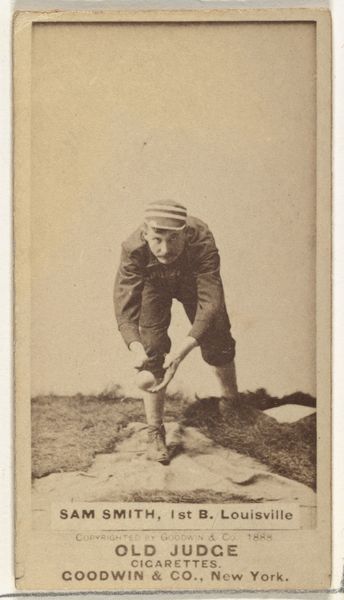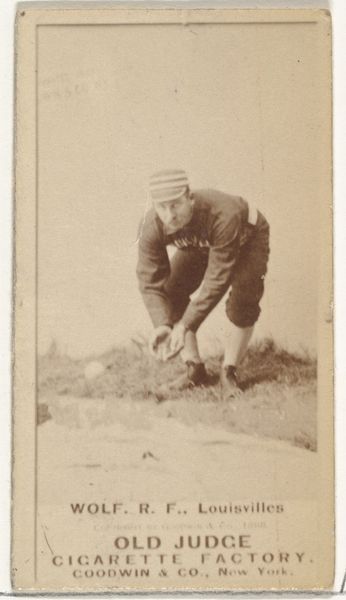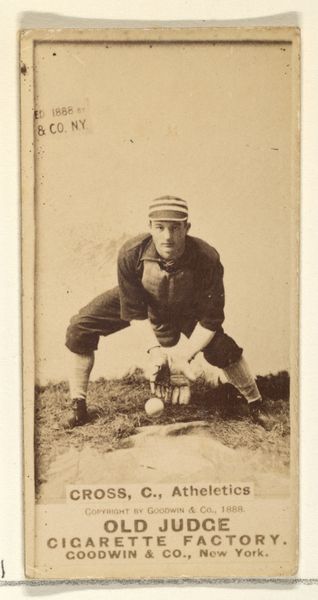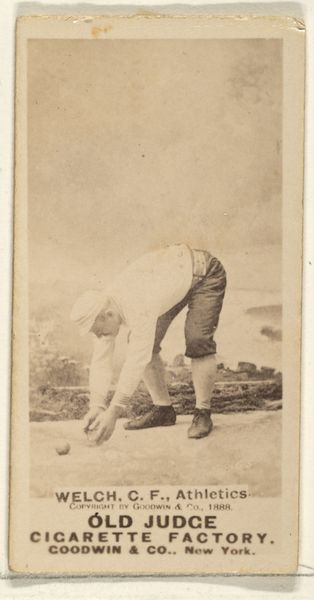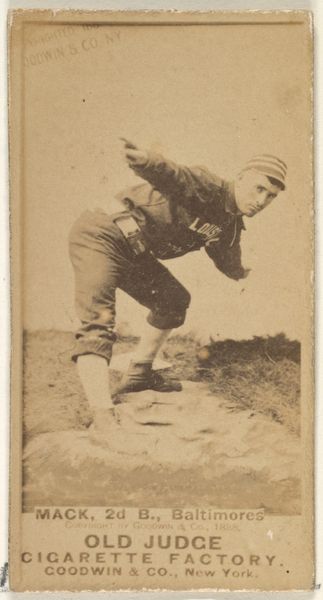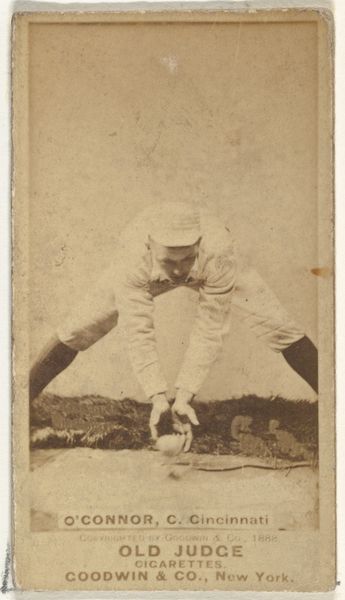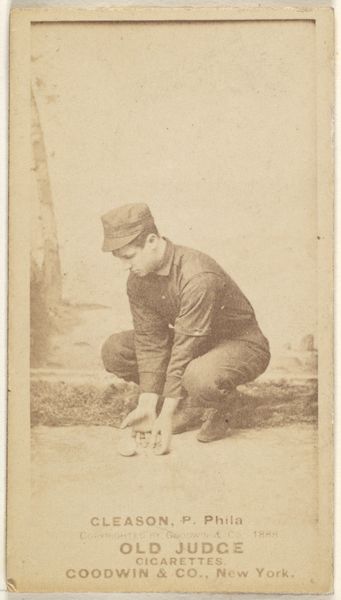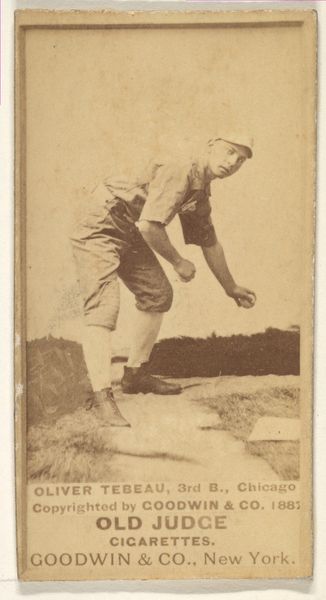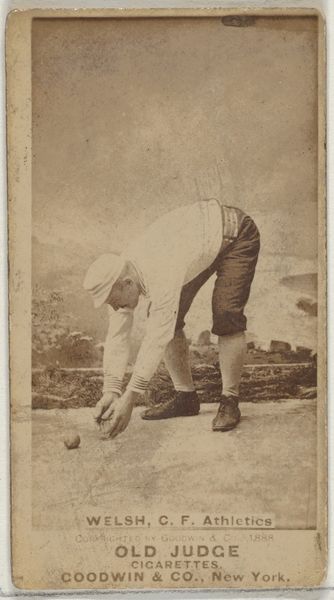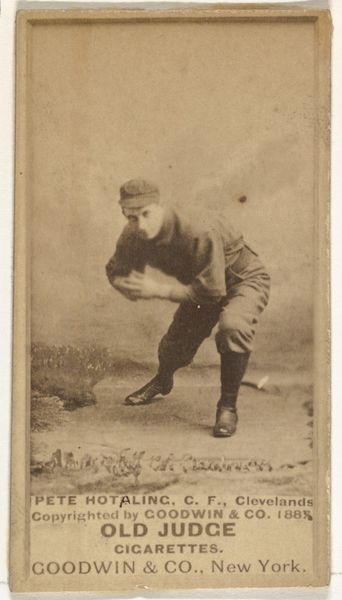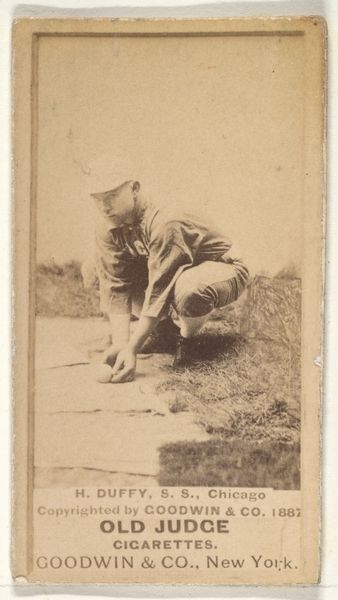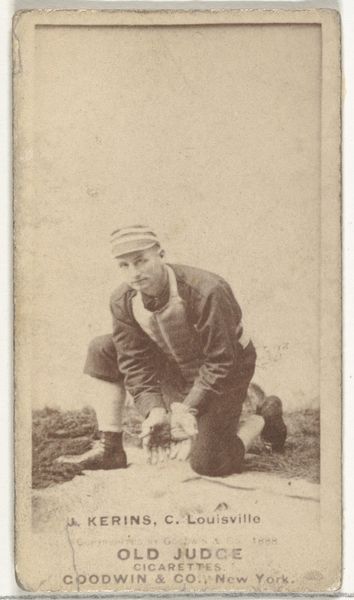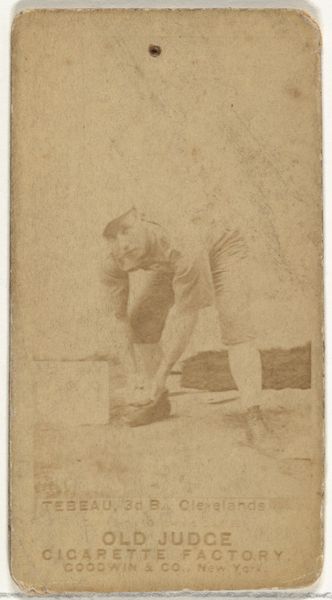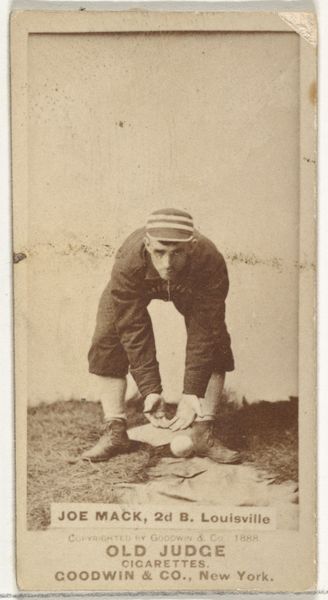
Oliver Wendell "Patsy" Tebeau, 3rd Base, Chicago, from the Old Judge series (N172) for Old Judge Cigarettes 1888
0:00
0:00
drawing, print, photography
#
portrait
#
drawing
# print
#
baseball
#
photography
#
men
#
athlete
Dimensions: sheet: 2 11/16 x 1 3/8 in. (6.9 x 3.5 cm)
Copyright: Public Domain
Editor: This is a baseball card from 1888, featuring Oliver Wendell "Patsy" Tebeau, a third baseman for Chicago. It's a print made from a photograph, originally part of the Old Judge Cigarettes series. The sepia tones give it a real antique feel, and you can see the wear and tear of time on it. How do you interpret this piece, especially considering its original purpose as a promotional item? Curator: Well, beyond being a baseball card, it’s a fascinating artifact reflecting the commodification of sports and the rise of celebrity culture in late 19th-century America. Consider the context: mass production, increased leisure time, and a growing market for consumer goods, including tobacco. These cards were literally packaged with cigarettes, linking athletic prowess with the addictive nature of nicotine, primarily marketed to a white male audience. What does it say about society's values when images of athletes become tools to promote potentially harmful products? Editor: That's a pretty pointed observation, actually! It reveals this tension of associating success, sportsmanship, and physical health, with something clearly damaging. Does the individual player's identity get somewhat lost or distorted in that commercial transaction? Curator: Absolutely. Tebeau, the athlete, becomes a symbol for the aspirations and anxieties of a rapidly changing society. He’s not just a player; he's a carefully constructed image designed to sell a product. His likeness normalizes tobacco consumption as part of a respectable, masculine identity, mirroring the era's social hierarchies and power structures. Furthermore, the relative scarcity of similar materials depicting players of color from this period highlights significant inequities. Can you reflect on that as we analyze the construction of "American" identity here? Editor: Definitely, that makes me consider who was included, and who was systematically excluded from these portrayals. That’s given me a lot to think about; thank you for shedding light on the wider societal influences behind what I had considered "just" a baseball card. Curator: And thank you! It is crucial to remember that even seemingly innocuous images often carry deeply embedded cultural messages. They are mirrors reflecting our history, complete with its beauty and ugliness.
Comments
No comments
Be the first to comment and join the conversation on the ultimate creative platform.
